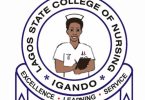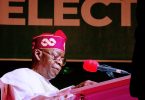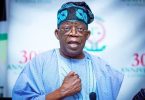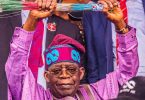Sir: Historians and other scholars have argued that Nigeria was not underdeveloped before the advent of colonialism; she was only under recorded. People, for instance, lived in that riverine area before Mungo Park was born.
We just did not have a book of history to back up this claim and so it was easy for Mungo Park to say he discovered River Niger through his ability to document. Illiteracy, which means inability to read, really affected the quick development of Nigeria as most legacies, heritage, norms, charms and other virtues which would have been better preserved in written forms were only orally rendered from one generation to another, resulting in misrepresentations among other challenges which come with orality.
The advent of technology was a booster of literacy among all age brackets in Nigeria. The need to save their children’s name and tell who is calling has compelled many old Nigerians to acquire literacy skills (ability to read and write) since the emergence of mobile phones in Nigeria.
The interpersonal benefits of social media have also made many Nigerian youth who dislike reading become avid readers since they must chat and read other people’s posts. The increase in reading habit which is consequent upon the introduction of technological gadgets and social media is what I describe in this article as e-literacy.
Technology has, thankfully, boosted the reading tradition among Nigerians and this high literacy rate is, of course, a criterion for national development.
Now that the reading culture has been facilitated by technology and social media, what follows is: What do Nigerians read? The foremost Nigerian standup comedian, Ali Baba, reported very recently that he attended the Google for Nigeria workshop where it was shared that the most googled topics in Nigeria are: how to prepare Banga soup, richest musician in Nigeria and how to dance shaku shaku. I do not mean to say that these topics are irrelevant but I would want us to ponder on the implication of this revelation for the national development of Nigeria?
If a single topic bordering on research or national development did not feature on our most googled topics, it means there is a need to reassess our literacy. A literacy that does not lead to personal, collective and national development is what I describe in this essay as Ill-Literacy.
The more we read, the less intelligent we have become. The most abused platforms in Nigeria can be said to be social media, especially whatsApp groups where fabricated, falsified and unverified broadcasts spread in the manner of a virus. Critical thinking is a feature of literacy.
Everyone who reads and writes is expected to subject her or others’ opinion to a critical assessment. The first task of a reader is to question, and not to believe. If for instance, a social media broadcast reads: “Robbery is on now at Alausa, Ikeja. Avoid the route,” the first duty of anyone who receives such a broadcast is to try establishing when the word “now” refers to. This should come before a rebroadcast.
A literacy that does not teach you to question information is Ill-Literacy. A literacy that eventually makes you write iz, kk, wit, bcuz informatn in formal writings is Ill-Literacy. The literacy which has produced more readers and writers of English but ironically fewer competent users of the same language is Ill-Literacy. Nigeria has moved from literacy, to e-literacy and to ill-literacy.
This article is an appeal to move now from Ill-Literacy to Heal-Literacy. Heal-Literacy, is as I have conceived of it, the type of literacy which leads to personal development for the literates. Heal-Literacy is one that sharpens the reader’s critical and evaluative ability.
Dear Nigerians, let us become Heal-Literates!
Ganiu Abisoye Bamgbose
Illiteracy, e-literacy, ill-literacy: The Nigerian continuum








